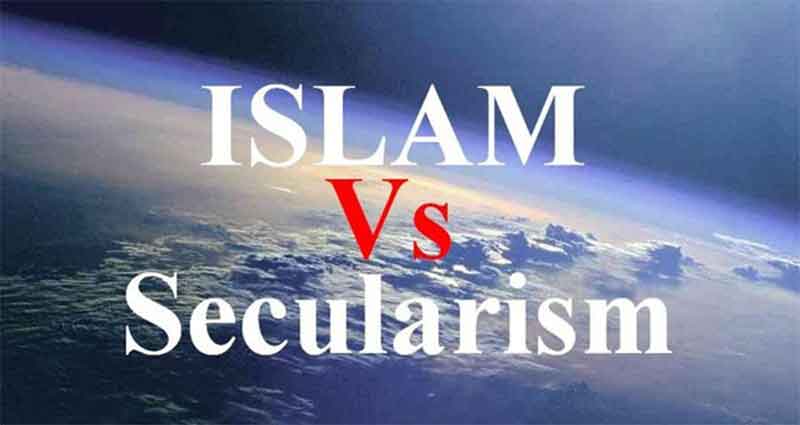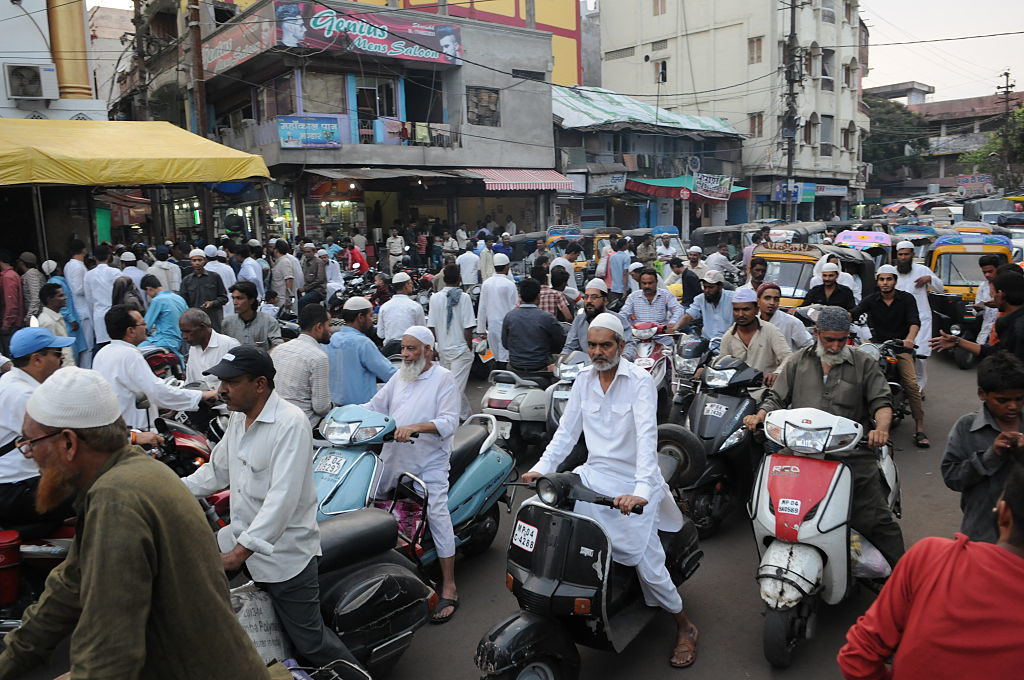
Adjectives such as intolerant, rigid, and incompatible are often associated with Islam. It has been part of usual propaganda carried without context, with vested political motives, and half-baked assertions. It is more viewed in the west and an increasing number of other places as a religion more inclined towards violence and critical of modern civilization. Many authors have argued in their writings as a faith spread by the sword and has bloody borders. It provides an opportunity to us truly investigate it from a historical perspective and through original sources.
It will be desirable to carefully study and sequentially investigate the most common make-beliefs that most people have about Islam and Muslims as a community.
Some common make beliefs are as follows -:
- Islam is exclusive as it claims it is the only valid religion-
It is the most common and often trumpeted assertion without any logical basis. It gets amplified in manipulated T.V. debates that have the sole purpose of organizing hate for political gains. Islam is a monotheistic Semitic faith. It is the only faith that makes it necessary for every Muslim to believe in Prophet Isa (Jesus Christ) PBUH and Prophet Moses PBUH as the mightiest messengers of Almighty Allah SWT. It can well be ascertained in the Quranic verse (2:136).
Quran also states in unequivocal terms that a prophet had been sent for every nation with reference being Quraan (16:36). So, therefore, when it is for everybody, there is no reason for it to be exclusive.
There is a Hadith (sayings of Prophet Muhammad (PBUH) with reference being Sahih Bukhari Hadith:438, which states that Prophet Muhammad (PBUH) said that the whole world is a musallah (Muslim prayer mat) for him. All would agree that there cannot be a more inclusive statement than this.
As far as validity is concerned, every follower of every religion assumes his faith to be most valid. Else, there is no reason for them to follow that faith. It holds for Muslims as well as for others.
- Islam promotes forced conversions.
It is also an old accusation turned into a gradual belief that Islam spread by forced conversions. It is totally incorrect and must be addressed in two ways which are as follows-:
Quranic references
There are ample references which state that Islam strictly urges the followers to refrain from forced conversion.
Most notable being Quran 2:256, “Let there be no compulsion in religion.”
A historical and logical reason
Even in their rule, if forced conversion to Islam was the state policy, why would Muslim majority areas be scattered all over and not in geographical continuity, although Muslim rule was all over. Historian De Lacy O’Leary, in the book “Islam at the crossroad,” says, “History makes it clear, however, that the legend of fanatical Muslims sweeping through the world and forcing Islam at the point of the sword upon conquered races is one of the most fantastically absurd myths that historians have ever repeated.”
Non-Muslims in Gulf countries account for 5-10% of the population, although Muslims enjoy political power in that region for the last 14 centuries. As per the Pew Research Study Centre figures, Islam is the fastest growing religion in Europe and the western world, all though nowhere in those regions Muslims ever enjoyed political power. Muslim rulers have been compassionate most of the time whenever they went to new lands. The best example was that of Jerusalem; when Saladin took the city in 1187, every Christian soul remained unharmed, although when the crusaders had taken the city in 1099, not a single Muslim soul was left alive.
- Islam is unjust to women.
It is the most prevalent misconception that Islam is highly unjust towards women. It provides an opportunity to examine it critically. The most common way to determine it is in terms of rights and responsibilities.
Equality is the cornerstone as far Islamic teachings are concerned. An important verse in the Qur’an reads, “The men believers and the women believers are responsible for each other. They enjoin the good and forbid the evil, they observe prayers and give charitable alms and obey God and his Prophet.” (Qur’an, 9:71). It observes that men and women have equal responsibilities as far as following Islamic teachings are concerned.
Women have the right to inherit their parent’s property, have the right to say ‘no’ to a marriage, and can go for voluntary divorce (khula) if needed under specific circumstances. All clearly defined inheritance laws are mentioned under Surah Nisa of Quraan.
As far as permission to a Muslim man to have up to four wives is concerned, it is allowed with a number of conditions, including the ability to provide resource and emotional justice to all four wives. Quranic reference for the same is Surah 4 verse 2. In addition, this provision often provides an option for widows to get remarried and their children to be brought up well.
- Muslims cannot have a national identity.
Like most of the other religions, Muslims also have a multidimensional identity. One is related to the country they live in, which comes from surrounding culture and its practices. Secondly, it is the association towards the place which has their holy sites. Lastly, Pan Islamism can be defined as their resonance towards their coreligionists in any part of the world. But the question arises isn’t this true with every religion?
This emotional connection is standard in all communities. For instance, a Hindu living in Fiji will have an emotional attachment towards Hindu religious sites in India. Similarly, Christians anywhere in the world will have an emotional connection with the Vatican or Bethlehem. Arab is an ethnolinguistic term, primarily identifying those people who speak Arabic as their mother tongue.
Moreover, if religion is responsible for national aspirations, then more Muslims are non-Arabs than Arabs. The country with the highest Muslim population is Indonesia. The highest concentration of Muslims is in South Asia. Even Persia, which lies adjacent to Arabia, has different cultures and national aspirations than Arabs despite the same religion. Persians think their culture is superior to that of Arabs. For Indian Muslims, even during the Mughal rule, Arabic was never a language of administration and was confined to Islamic scriptures.
- Islam promotes tribal mentality and racism.
It is another misconception that often gets promoted for vested reasons. The last sermon of Prophet Muhammad (PBUH) gives us an insight against this where he mentions equality. He stated there is no superiority of rich over poor, white over black, Arab over non-Arab in any way except piety and good action.
Hazrat Bilal (R.A.) was a black slave who embraced Islam in initial days. He was given the status of the first muezzin (one who says azaan (call for prayer)) of Islam. Bilal later married an Arab woman from a respectable tribe – unthinkable for an enslaved African in the pre-Islamic period.
A better understanding can be obtained if the above-stated points are read without any intention to contradict or believe but as food for thought for critical evaluation. Present-day politics of right-wingers try to portray everything under the sun as a struggle between perceived fiercely excited Muslims and proverbially timid others. It is to be acknowledged in no uncertain terms that all communities have enjoyed an excellent relationship for centuries. In today’s world, no country can be a global leader with a strong economy if a particular section feels unwanted and its potential is left underdeveloped and unexplored.
Nadeem Khan is an author and speaker based in Toronto
GET COUNTERCURRENTS DAILY NEWSLETTER STRAIGHT TO YOUR INBOX















































